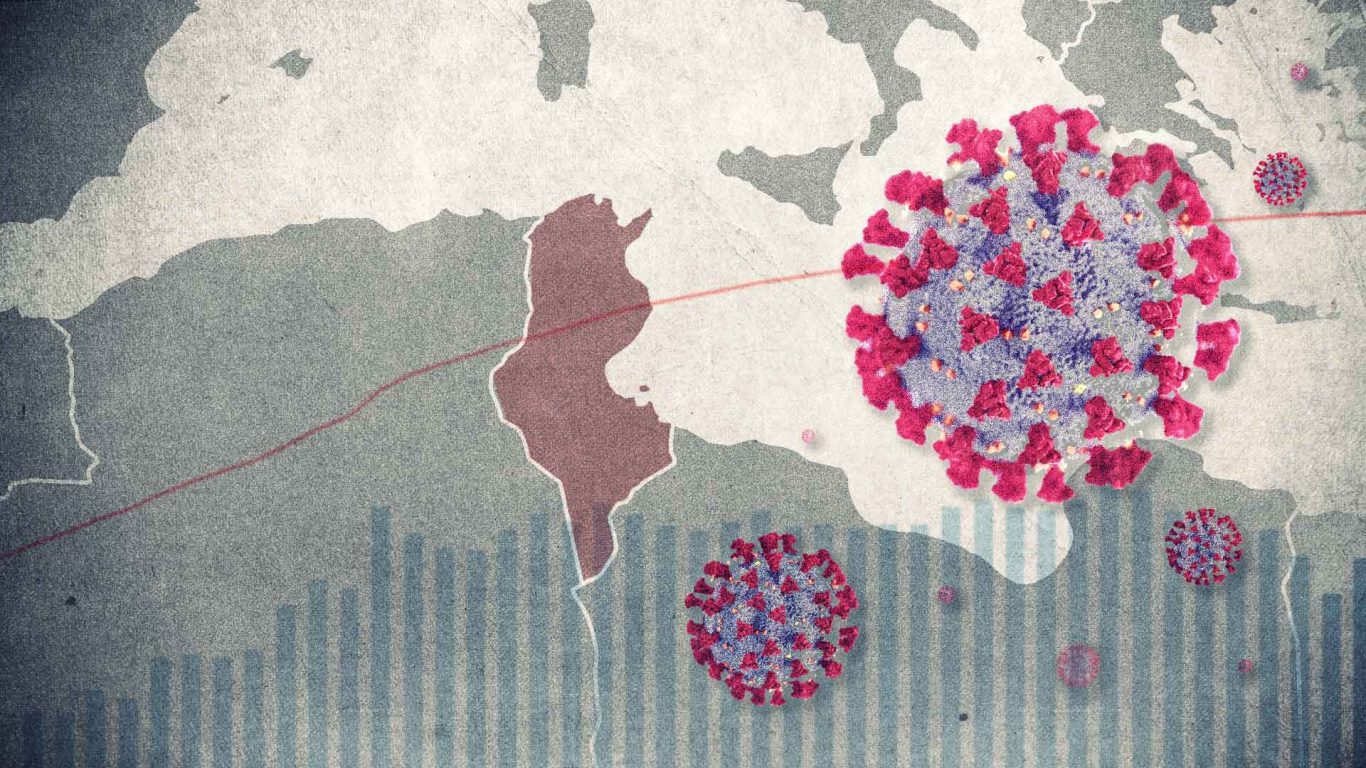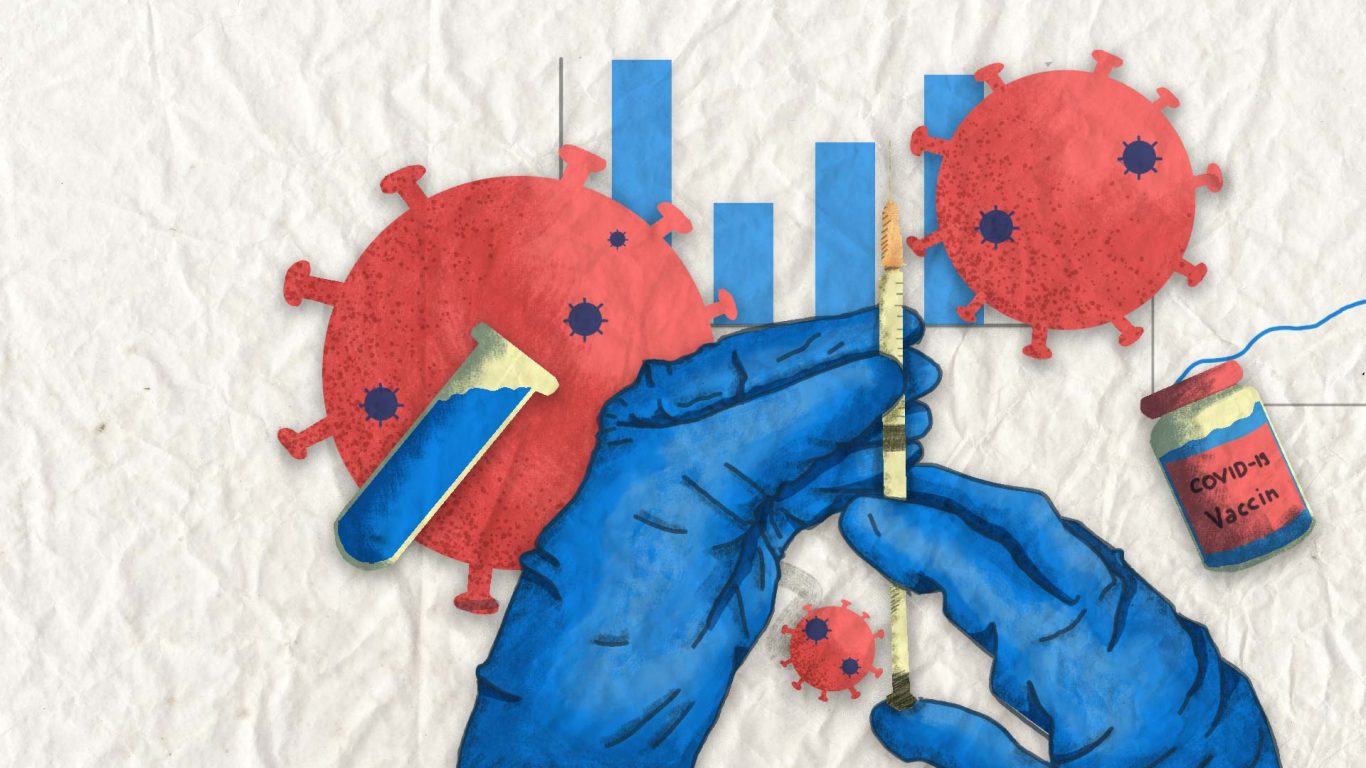Since June 21, the Tunisian army has assisted the health care workers in Kairouan. Several tents have been set up, which now adjoin the field hospital from which they are separated by barbed wire. Here, on the outskirts of the city, a stream of ambulances steadily brings in new patients. "It's the Ibn El-Jazzar hospital that sends us the most urgent cases", one soldier says.
Other patients get to leave the sports hall. When their condition improves, they leave to make way for the more serious cases. An elderly man is accompanied outside by two doctors who help him into his son's car. Even though he is not fully recovered, and still dependent on a bottled oxygen, he leaves the Covid-19 unit hoping to recover at home. As the need for oxygen increases, many patients who have not found space in the hospital have been forced to rent oxygen concentrators at substantial cost in order to treat themselves at home, spending up to 700 dinars a week.
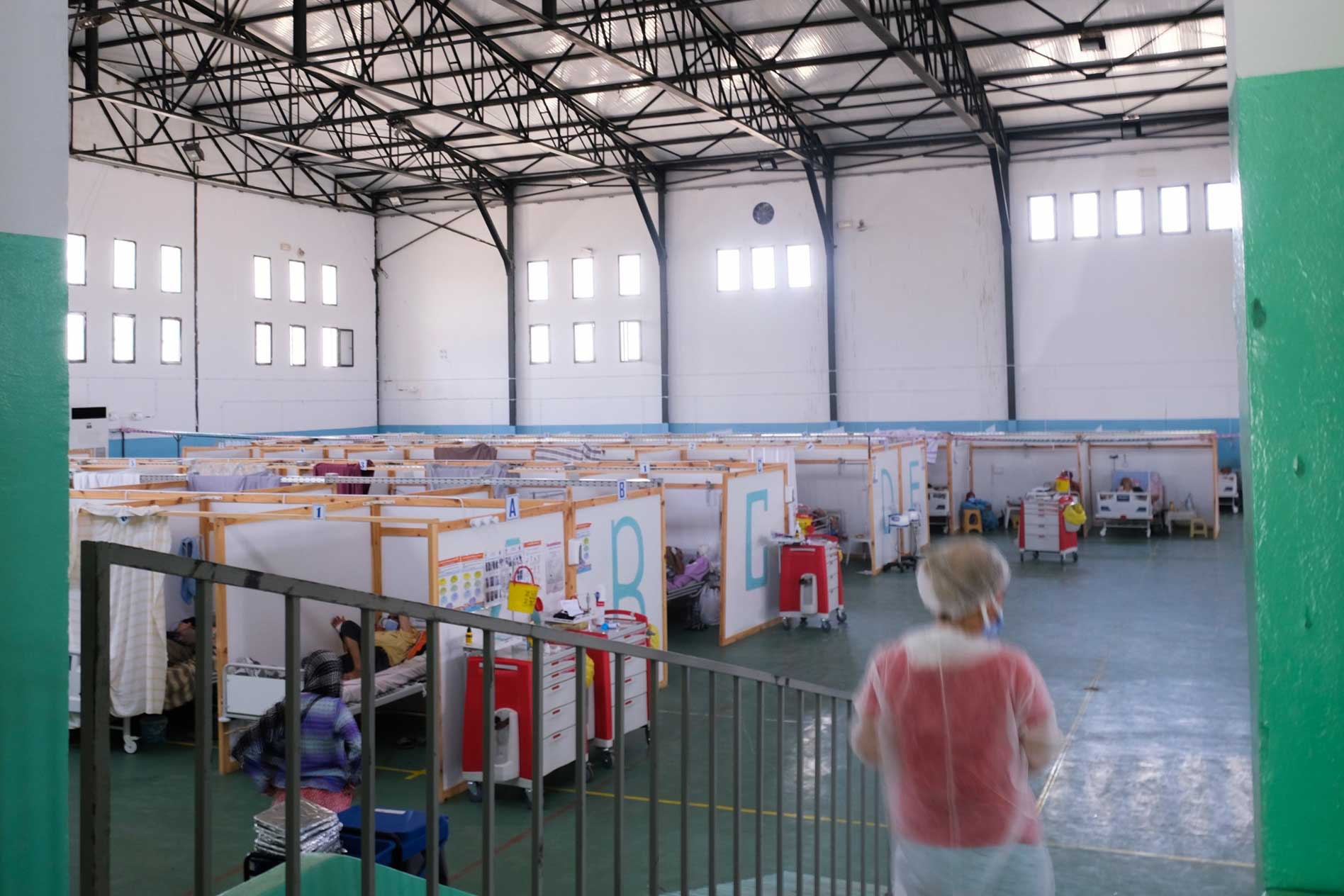
Inside the sports hall of the Hamda Laouani Stadium, dozens of beds have been set up to cope with the influx of patients.
SATURATED HOSPITALS
In front of the Covid-19 section of Ibn El-Jazzar hospital, a large oxygen tank is on display. Every day at least 10,000 litres of oxygen is consumed in the governorate, which has a reserve of 30,000 litres that is continuously replenished, according to the regional health department. Although Ibn El-Jazzar hospital has enough equipment, it lacks medical staff: "we need personnel, our doctors and nurses are exhausted", says the director.
According to Sofiene Romdhani, a local civil society member, the main problem in Kairouan is the lack of available hospital beds and health personnel.
"In the midst of the crisis, the consequences of the disparity in access to health care existing between inland regions and coastal cities are before everyone's eyes", he explains.
At the beginning of the crisis, in March 2020, neither the Ibn El-Jazzar hospital (the best equipped in the Kairouan region, which has 600,000 inhabitants), nor the nine other hospitals across the governorate had a single resuscitation bed, Mohamed Ali Hamdi explains.
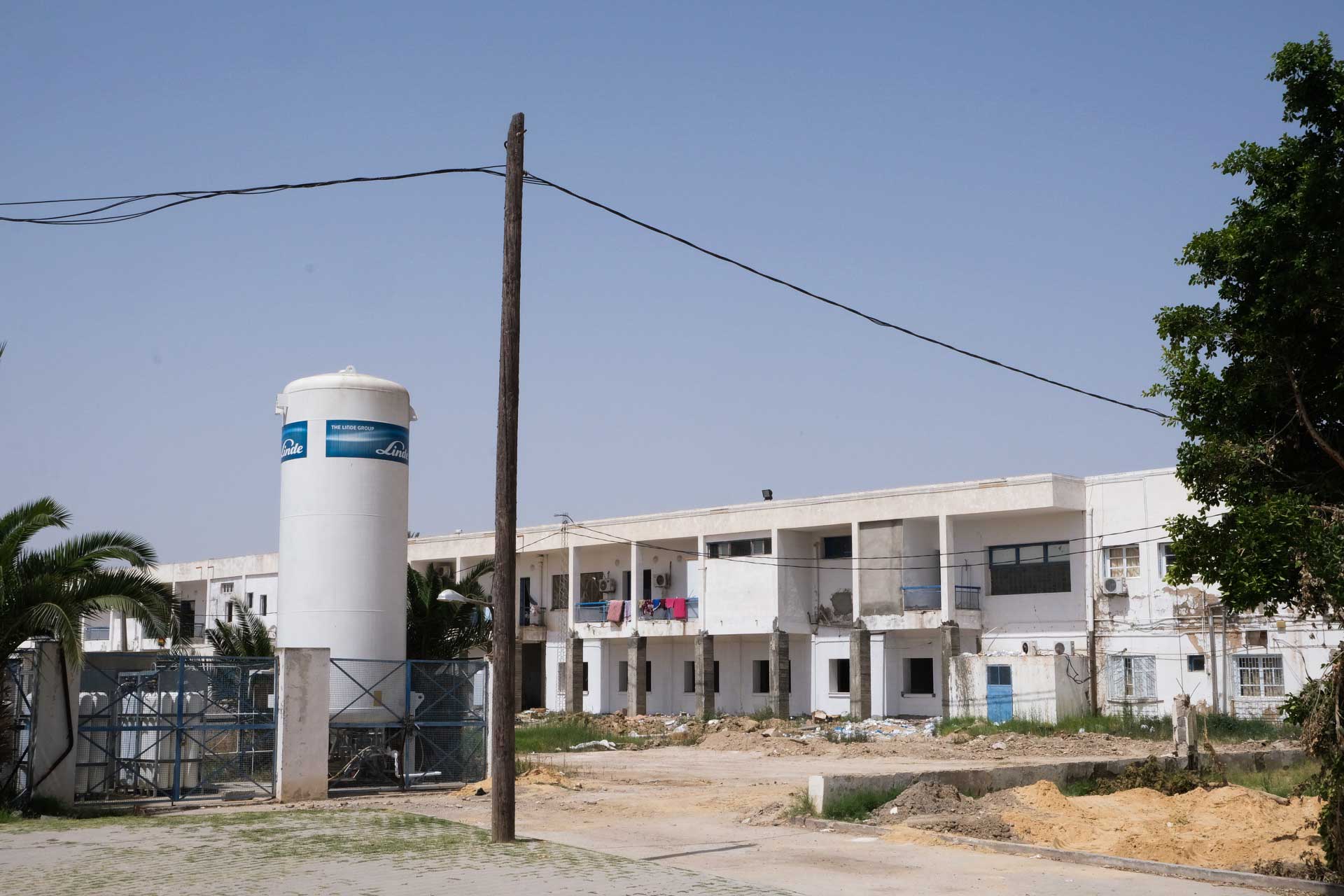
The Ibn El-Jazzar hospital has an oxygen tank holding 10,000 litres.
Then the hospital installed five new beds to cope with the first wave. Today, the management assures that it has added fifteen new beds, by transferring from other services such as pneumology and cardiology. According to data provided to Inkyfada by the Regional Health Directorate of Kairouan, the governorate has thus gone from five intensive care beds to 40. However, this is not enough. The deployment of the Tunisian army has further expanded the governorates capacities in fighting Covid-19 by adding 12 resuscitation beds and 6 oxygen beds.
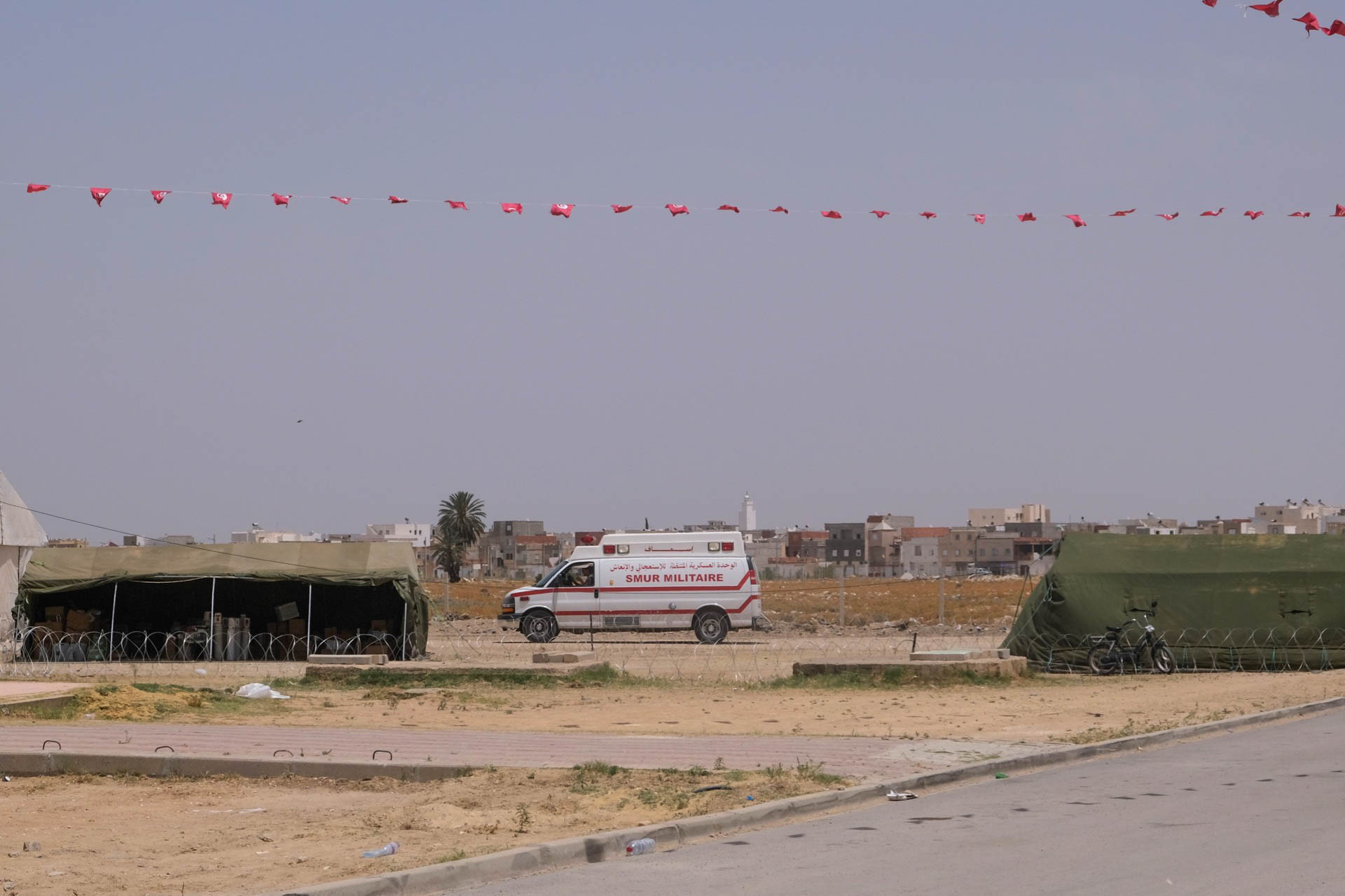
Next to the Hamda Laouani Stadium, the Tunisian army has set up tents with 16 beds to accommodate Covid-19 patients.
But this is far from sufficient. As soon as a bed opens up, it is immediately filled by another patient. "If a patient's situation improves, we try to provide him with an oxygen concentrator so that he can go home, and we free up the bed that he occupies to care for another patient", explains Mohamed Ali Hamdi, the director of Ibn El-Jazzar hospital.
The hospital facilities allocated to Covid-19 across the governorate are centralised in the city of Kairouan, which has all of the resuscitation beds and the vast majority of the oxygen beds. To access them, patients coming from all over the region sometimes have to pass through several other hospital structures before reaching the Ibn El-Jazzar regional hospital.
On the same subject
AN EXPLOSION IN NEW CASES
As he waits for his scan results in front of the MRI clinic, Majdi repeats that elsewhere in the city: "it's a disaster". Next to him, sitting on the floor, a 90-year-old man keeps his cool as his eyes are fixed ahead, with two masks covering his mouth for fear of being contagious.
At the clinic entrance, a group of women with their children attempt to decipher the results they have finally received. "When we come for a PCR test or a chest scan, it's already too late. We are aware that, most probably, we have been contaminated. Sometimes the PCR test is negative, but the scan shows that we have Covid-19", says Majdi, pacing up and down.
"In Kairouan, at the moment, we all have a Covid-19 positive relative. If he is not in hospital, he is at home with us."
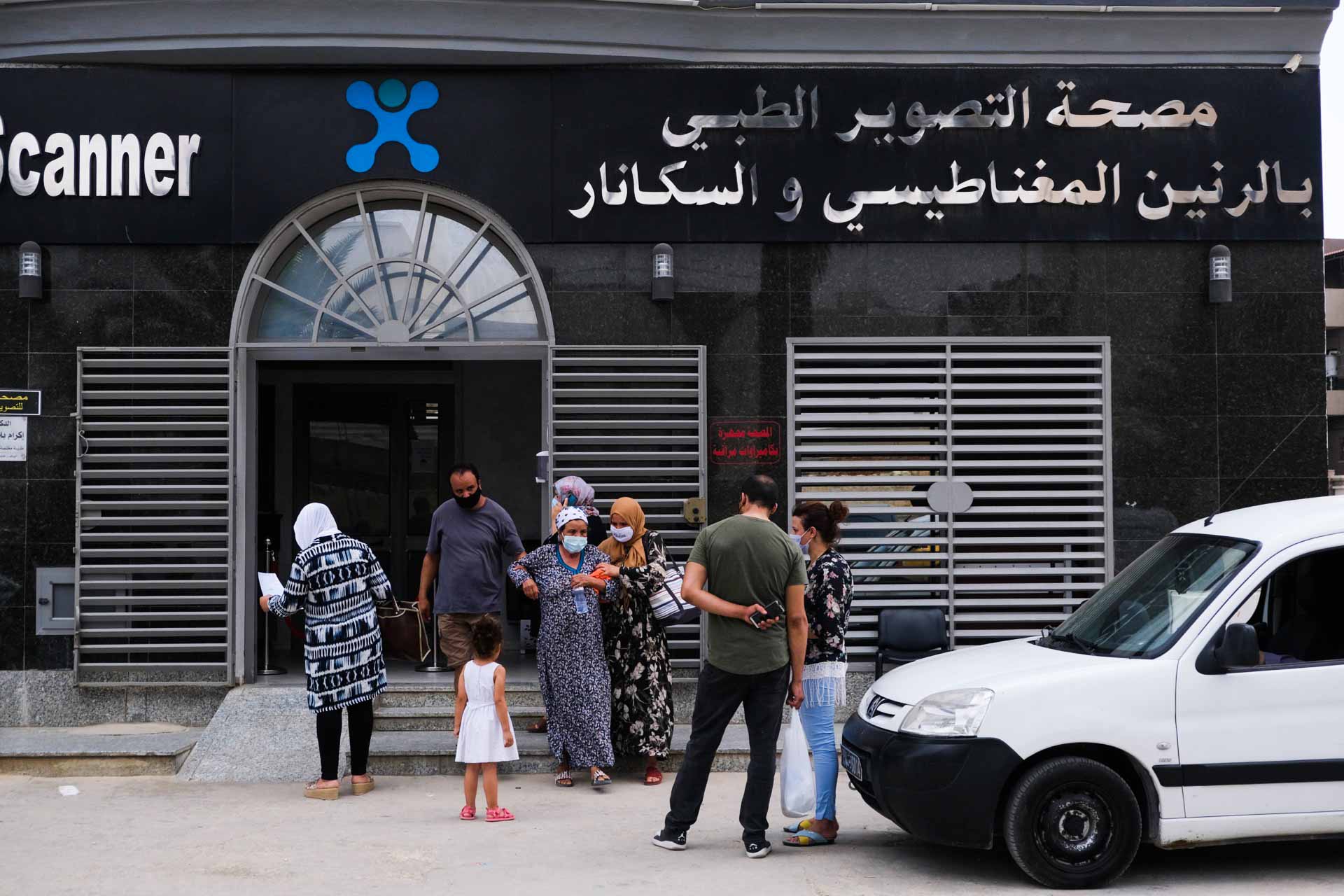
In front of the MRI clinic, several people are waiting for their scan results, to find out if they have been contaminated.
In this disaster-stricken governorate, where the percentage of testing positive for Covid-19 hovers around 50%, the pandemic seems to have no intention of stopping, despite the reassuring words of the regional director of health, Mohamed Rouis: "From next week, we hope to see a stabilisation in the curve of Covid-19 infections", he told Inkyfada, holding statistics in his hand.
In the meantime, the governorate has exceeded 400 cases of contamination per 100,000 inhabitants, a "very high" infection rate according to the Ministry of Health, especially since the vaccination campaign is stalling in the region. Only 5.8% of the population has received their first vaccine dose, according to the Evax Open Data site. In the governorate of Tunis, this figure is closer to 20%.
On the same subject
This high level of contamination raises fears of the presence of the Delta variant, a mutation of the virus that is characterised by spreading at a particularly high rate. "At present, the complete sequencing is being carried out to find out what it is", explains the regional director of health. Several strains taken from patients with Covid-19 have been sent to the Pasteur Institute in Tunis. According to Henda Triki, head of the Institute's clinical virology laboratory, "the results will be available on Sunday".
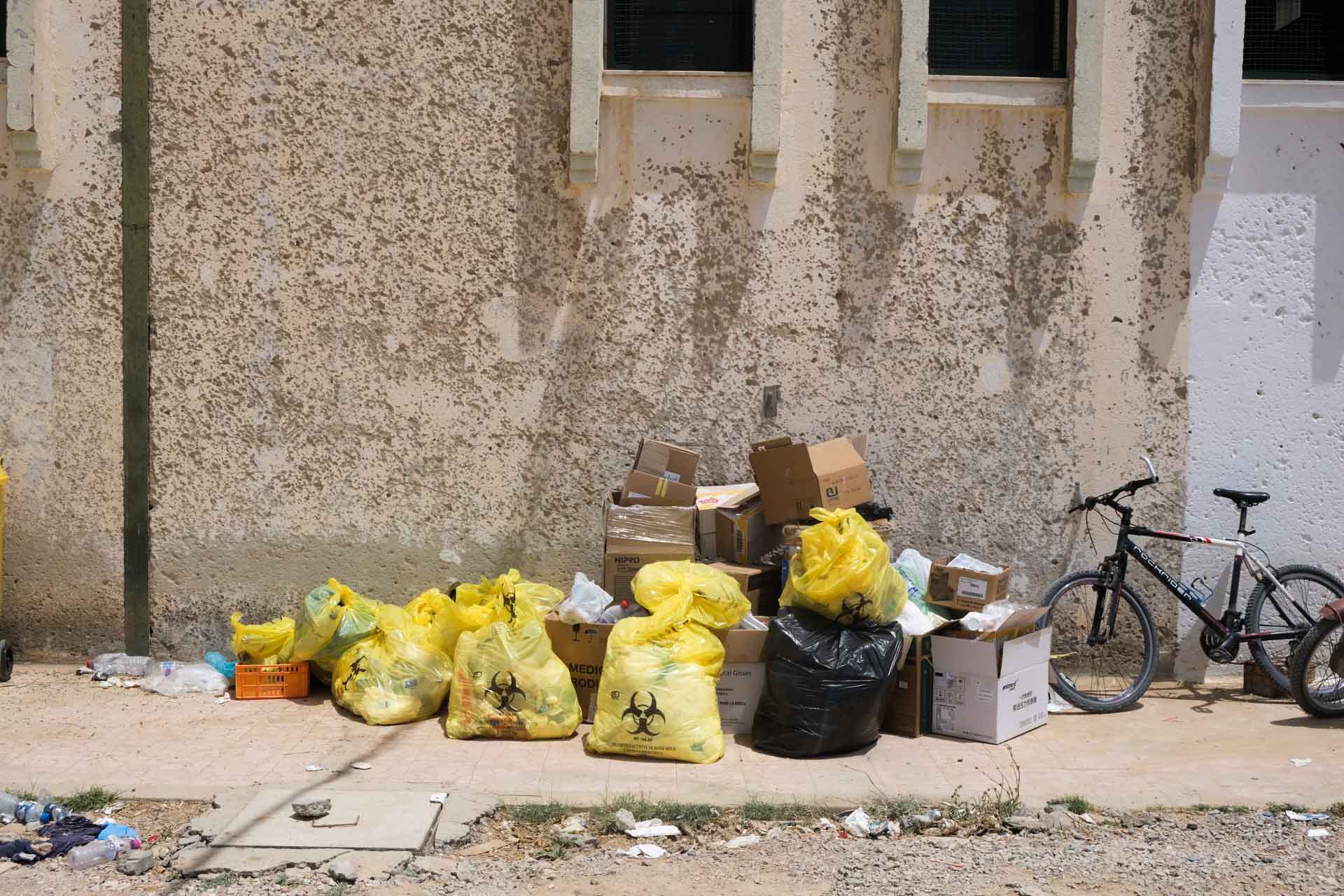
Behind the field hospital, trash bags full of Covid-19 waste lie on the ground.
"WE HAVE TO EAT WELL, EVERYONE MAKES DO AS BEST THEY CAN"
Faced with this emergency, the authorities decreed a general lockdown from June 20 to 27, as had been previously done in Beja, Siliana and Zaghouan. But the measures are difficult to enforce. When you move away from the city's clinics and hospitals, the feeling of despair gives way to resignation.
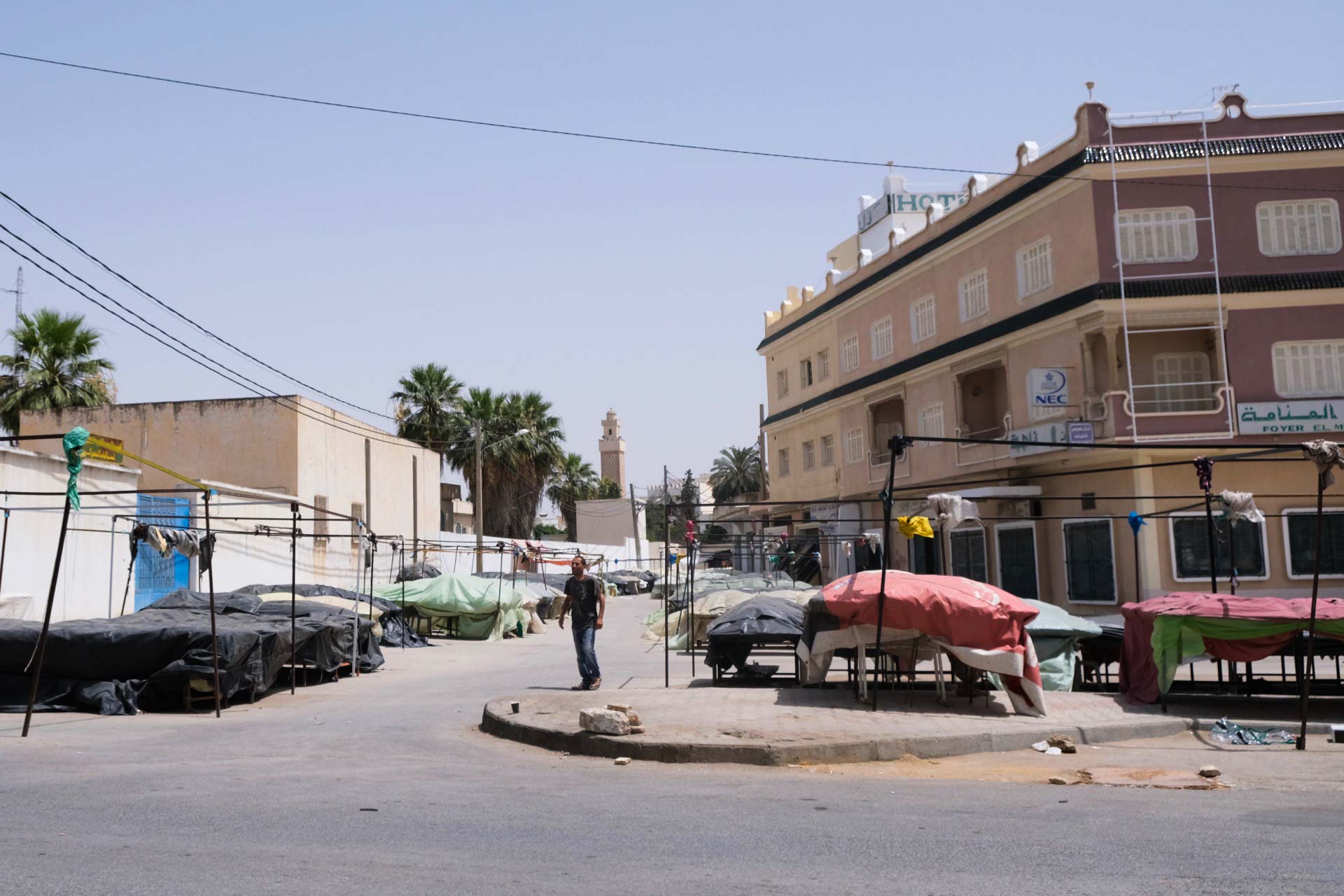
A one-week general lockdown has been declared in the city.
When asked about the evolution of the health situation, Hamza, disillusioned, simply shakes his head. Forced to close his business, this scrap metal merchant does not point fingers at those who continue to work despite the confinement: "we have to eat well, everyone manages as best they can", he says as he leaves the city centre on his scooter, where dozens of people are shopping without respecting the social distancing measures. A few streets away, away from the noise of the honking taxis that continue to operate, and the public transport, Sofiene Romdhani echoes Hamza's words.
"With no other alternative, even Covid-19 positive people will continue to go out and go to work", he asserts.
According to him, it is impossible to enforce a general lockdown without providing social aid to the most vulnerable. Especially since in the governorate of Kairouan, 34.9% of the population lives on less than 5 dinars a day, which is the highest poverty level in the country.
"It would be enough to provide families with an allowance of 200 dinars, as the previous government did, so that people could really stay at home", he estimates. Sofiene also continues to meet with his friends in an empty café, each sitting at a different table to try to keep a few metres apart. His family works at the city hospital, so this activist regularly buys quick tests at the pharmacy to monitor his health. "I have resigned myself to the fact that it will simply happen to me [too]."
